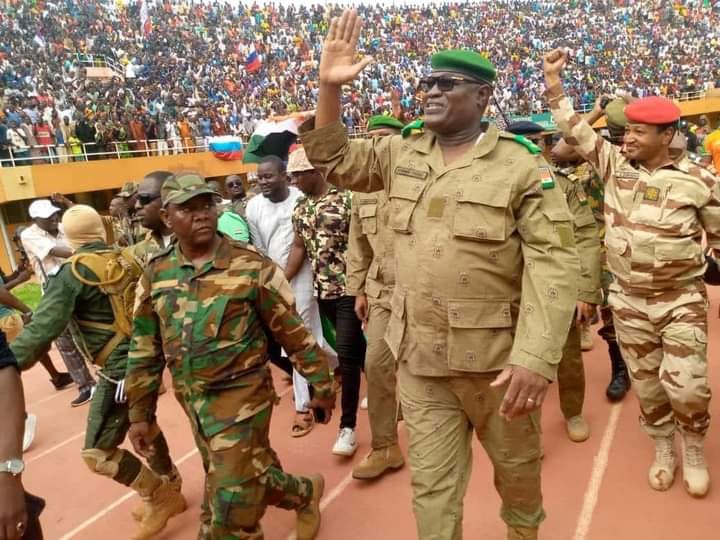
UN High Commissioner for Human Rights Volker Türk raised concerns Aug. 18 about the Nigerien military junta’s decision to prosecute deposed president Mohamed Bazoum and others working with him for high treason. Türk called on the generals who seized power in July to immediately restore constitutional rule. “Now the very people who they elected to build a pathway to end their destitution have been removed by force against the constitutional order and detained by the coup leaders. They must be released at once, and democracy restored. This decision is not only politically motivated against a democratically elected President but has no legal basis as the normal functioning of democratic institutions [has] been cast aside,” Türk said.
According to a statement read out on Aug. 13 by junta representative Col-Maj Amadou Abdramane, Bazoum is to face trial for “high treason and undermining the internal and external security of Niger.” Abdramane alleged that Bazoum’s communication with foreign governments compromised Niger’s security.
The Economic Community of West African States (ECOWAS) condemned the treason charges against Bazoum, stating that the move “contradicts the reported willingness of the military authorities in the Republic of Niger to restore constitutional order through peaceful means.” ECOWAS last week approved military intervention to restore Niger’s constitutional order.
From Jurist, Aug. 18. Use with permission.
Photo of junta leaders: Levée d’Afrique via Africa Arguments





ECOWAS rejects Niger junta proposal for election timeline
The Economic Community of West African States (ECOWAS) signaled on Aug. 21 that it has rejected a proposal by Niger’s military junta to hold elections within three years.
A delegation from ECOWAS arrived in Niamey two days earlier to discuss diplomatic paths towards undoing the July 26 coup, following comments from ECOWAS Commissioner for Political Affairs, Peace & Security Abdel-Fatau Musah in which he threatened military intervention and stated that “the D-Day is also decided.”
The junta had previously refused entry to a joint African Union-UN-ECOWAS delegation, but on Aug. 20 junta leader General Abdourahamane Tiani said in an address that coup leaders do not want war and remain “open to dialogue,” while continuing to insist on the three-year timeline towards reinstituting democratic rule.
On Aug. 21, however, Musah commented to several news outlets that the junta’s timeline is “unacceptable” and that the ECOWAS position remains unchanged. He told the Nigerian TV program Sunrise Daily, “ECOWAS is not going to engage in endless haggling over restoration of constitutional order in [Niger]. [The coup leaders] have no legality, no legal basis for them, to hold the people of Niger to ransom and then dictating their own transition timetable.”
Musah reaffirmed that a military intervention by ECOWAS remains a last resort, and that ongoing discussions would determine what the bloc’s next steps will be. Tiani in his Aug. 20 address threatened that such an intervention would “not be the walk in the park that some people seem to think.” (Jurist)
African Union suspends Niger over coup
The African Union’s Peace & Security Council announced Aug. 22 that Niger has been suspended from participating in all AU activities following a military coup in the country. The suspension will remain in effect until Niger’s constitutional order is fully restored. The council strongly denounced the recent coup in Niger and appealed to AU member states to reject Niger’s military junta. (Jurist)